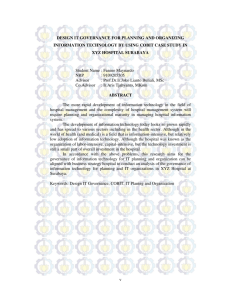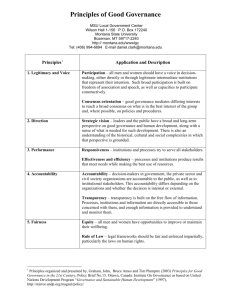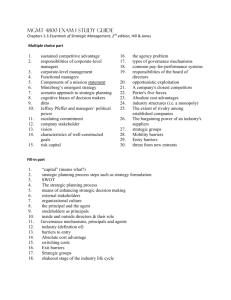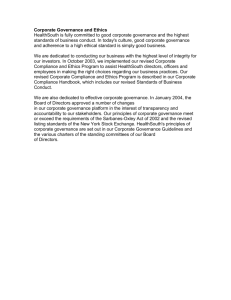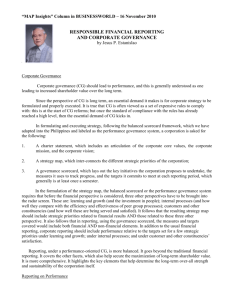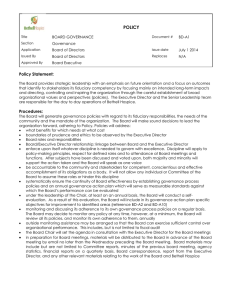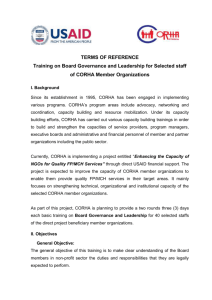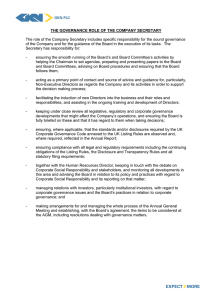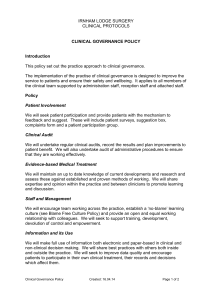Corporate Governance
advertisement
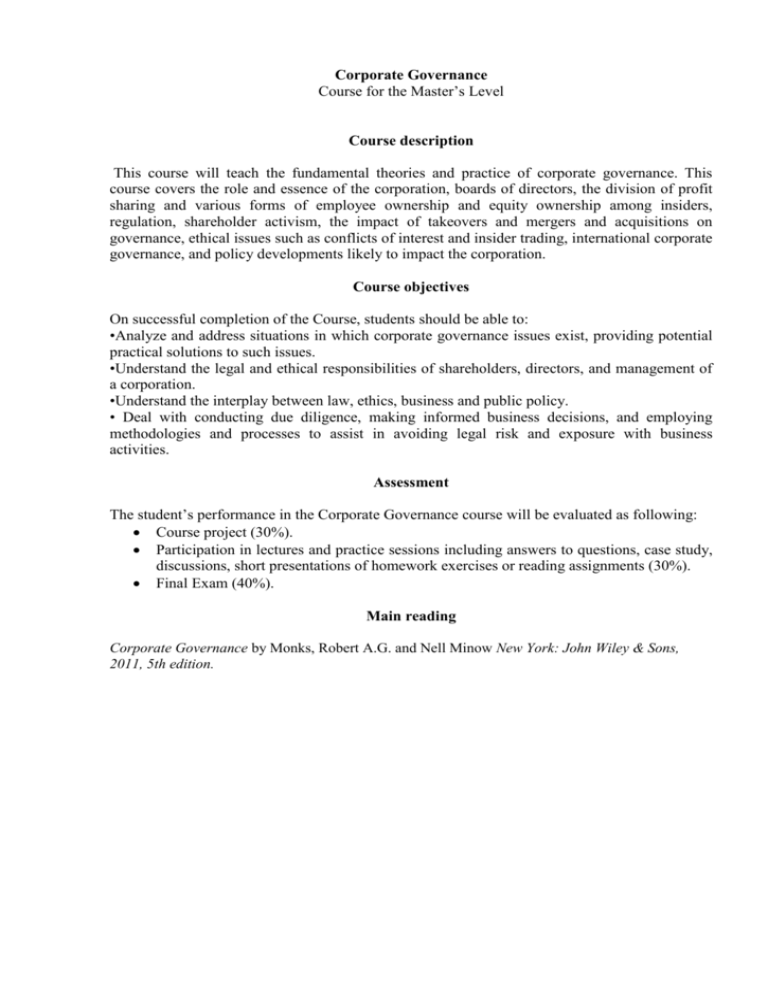
Corporate Governance Course for the Master’s Level Course description This course will teach the fundamental theories and practice of corporate governance. This course covers the role and essence of the corporation, boards of directors, the division of profit sharing and various forms of employee ownership and equity ownership among insiders, regulation, shareholder activism, the impact of takeovers and mergers and acquisitions on governance, ethical issues such as conflicts of interest and insider trading, international corporate governance, and policy developments likely to impact the corporation. Course objectives On successful completion of the Course, students should be able to: •Analyze and address situations in which corporate governance issues exist, providing potential practical solutions to such issues. •Understand the legal and ethical responsibilities of shareholders, directors, and management of a corporation. •Understand the interplay between law, ethics, business and public policy. • Deal with conducting due diligence, making informed business decisions, and employing methodologies and processes to assist in avoiding legal risk and exposure with business activities. Assessment The student’s performance in the Corporate Governance course will be evaluated as following: Course project (30%). Participation in lectures and practice sessions including answers to questions, case study, discussions, short presentations of homework exercises or reading assignments (30%). Final Exam (40%). Main reading Corporate Governance by Monks, Robert A.G. and Nell Minow New York: John Wiley & Sons, 2011, 5th edition.








